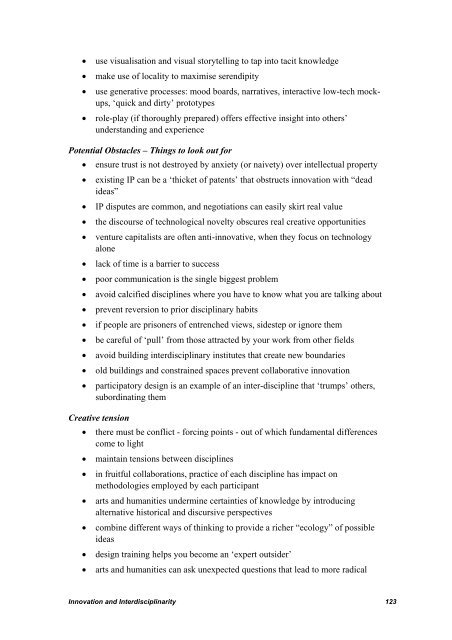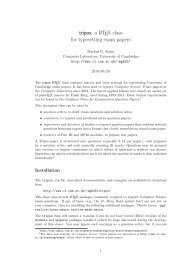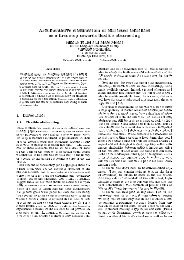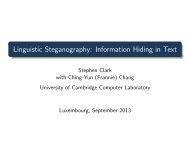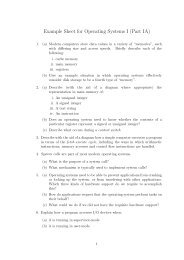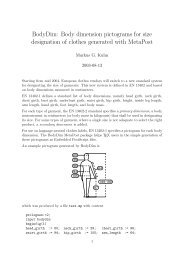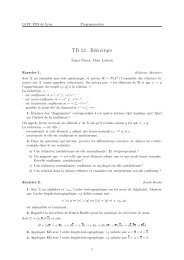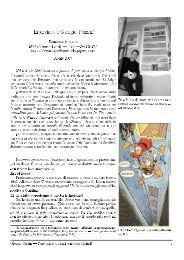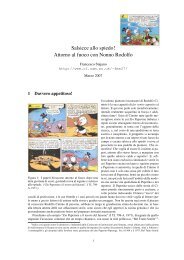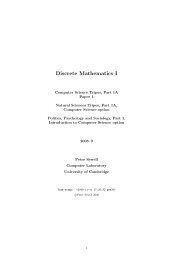Radical innovation: crossing knowledge boundaries with ...
Radical innovation: crossing knowledge boundaries with ...
Radical innovation: crossing knowledge boundaries with ...
Create successful ePaper yourself
Turn your PDF publications into a flip-book with our unique Google optimized e-Paper software.
� use visualisation and visual storytelling to tap into tacit <strong>knowledge</strong><br />
� make use of locality to maximise serendipity<br />
� use generative processes: mood boards, narratives, interactive low-tech mockups,<br />
‘quick and dirty’ prototypes<br />
� role-play (if thoroughly prepared) offers effective insight into others’<br />
understanding and experience<br />
Potential Obstacles – Things to look out for<br />
� ensure trust is not destroyed by anxiety (or naivety) over intellectual property<br />
� existing IP can be a ‘thicket of patents’ that obstructs <strong>innovation</strong> <strong>with</strong> “dead<br />
ideas”<br />
� IP disputes are common, and negotiations can easily skirt real value<br />
� the discourse of technological novelty obscures real creative opportunities<br />
� venture capitalists are often anti-innovative, when they focus on technology<br />
alone<br />
� lack of time is a barrier to success<br />
� poor communication is the single biggest problem<br />
� avoid calcified disciplines where you have to know what you are talking about<br />
� prevent reversion to prior disciplinary habits<br />
� if people are prisoners of entrenched views, sidestep or ignore them<br />
� be careful of ‘pull’ from those attracted by your work from other fields<br />
� avoid building interdisciplinary institutes that create new <strong>boundaries</strong><br />
� old buildings and constrained spaces prevent collaborative <strong>innovation</strong><br />
� participatory design is an example of an inter-discipline that ‘trumps’ others,<br />
subordinating them<br />
Creative tension<br />
� there must be conflict - forcing points - out of which fundamental differences<br />
come to light<br />
� maintain tensions between disciplines<br />
� in fruitful collaborations, practice of each discipline has impact on<br />
methodologies employed by each participant<br />
� arts and humanities undermine certainties of <strong>knowledge</strong> by introducing<br />
alternative historical and discursive perspectives<br />
� combine different ways of thinking to provide a richer “ecology” of possible<br />
ideas<br />
� design training helps you become an ‘expert outsider’<br />
� arts and humanities can ask unexpected questions that lead to more radical<br />
Innovation and Interdisciplinarity 123


